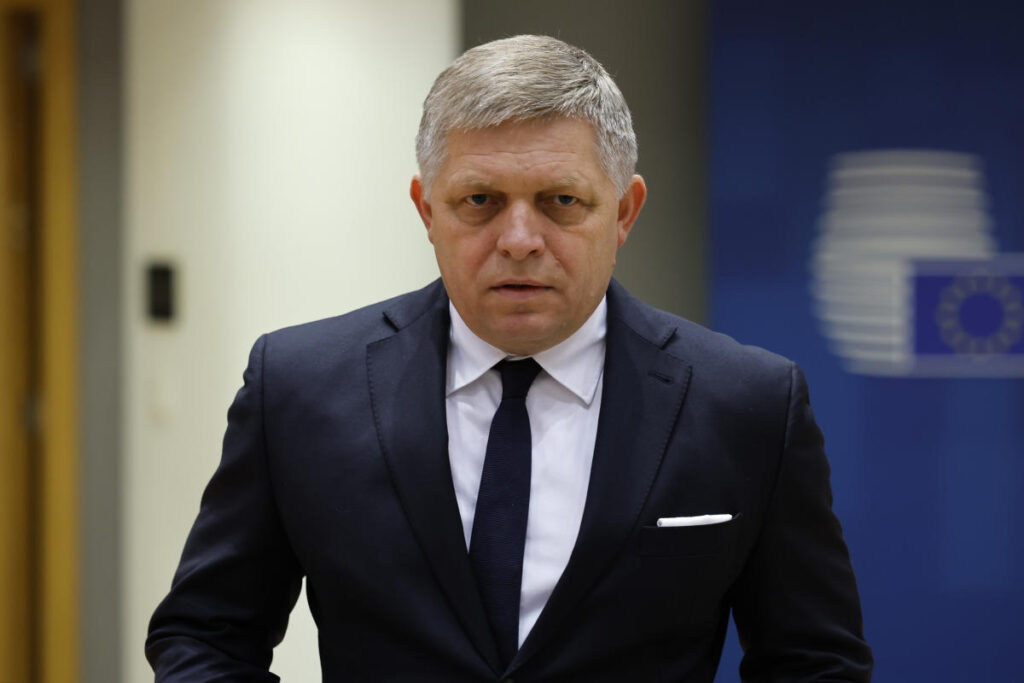Slovakia’s Prime Minister Robert Fico recently sparked controversy following his interview with Russia’s state-owned television, Rossiya 1, which met with criticism from the British ambassador to Slovakia, Nigel Baker. During the interview, Fico expressed his views on Western support for Ukraine amidst its conflict with Russia, asserting that such assistance merely prolongs the war and underlining his belief that European nations lack genuine interest in achieving peace. In response to Baker’s criticism, Fico rebuffed the ambassador’s comments, declaring that Slovakia is not a colony of the UK and admonishing Baker for interfering in Slovakia’s sovereign media activities and foreign policy. The friction highlights ongoing tensions surrounding Fico’s approach to international relations and the divergent perspectives on the conflict in Ukraine.
Ambassador Baker publicly expressed regret over Fico’s willingness to engage with a journalist subject to British and EU sanctions, and challenged the prime minister’s assertion that the West does not desire peace in Ukraine. Baker contended that the path to peace would be through the withdrawal of Russian troops from Ukrainian territory, a stance in direct contrast to Fico’s framing of the situation. This conflict in narratives epitomizes a broader divide within Europe regarding appropriate responses to Russian aggression and the situation in Ukraine. Fico’s steadfast criticism of Western involvement aligns with the populist and pro-Russian sentiments that have come to define his political career, thereby amplifying his party’s controversial stance on the matter.
Fico, who returned to power for the fourth time in 2023, leads the leftist Smer (Direction) party, known for its pro-Russia and anti-American platform. His administration’s policy decisions reflect a notable departure from the consensus views prevalent among other European leaders, particularly regarding military support for Ukraine. Fico has halted military aid to Ukraine and expressed opposition to sanctions targeting Russia, seeking to re-evaluate Slovakia’s role within NATO. His government’s posture raises concerns about the unity of EU responses to Russia and the implications for regional stability following the ongoing conflict.
Notably, Fico’s interview contained remarks about his desire to participate in a military parade in Moscow commemorating the 80th anniversary of the end of World War II. This statement has raised alarm among both opposition figures in Slovakia and politicians from neighboring Czech Republic, who view such comments as emblematic of a troubling alignment with Moscow. These developments are particularly pertinent in the context of Slovakia’s historical experiences and its relationship with Russia, as many in the region remain acutely aware of the geopolitical ramifications of advocating for closer ties with the Kremlin.
Criticism of Fico’s stance is prevalent not only within domestic political circles but also from regional allies who share apprehensions regarding his approach to Russia. By expressing admiration for Russian-led narratives and rejecting Western initiatives, Fico risks further isolating Slovakia within an increasingly polarized European political landscape. The degradation of Slovakia’s traditionally pro-European orientation poses questions about the future direction of the nation’s foreign policy, especially as Fico seeks to exert greater independence from EU and NATO frameworks.
In summary, the exchanges between Robert Fico and UK’s Ambassador Nigel Baker exemplify the contentious global dialogue surrounding the ongoing Ukraine war and its broader implications for European politics. Fico’s controversial statements and rejection of conventional diplomatic avenues place him at odds with many European leaders, threatening to disrupt Slovakia’s international relations. The unfolding narrative forces both domestic and international observers to consider the potential repercussions of Slovakia’s foreign policy choices, particularly in light of continuing tensions with Russia and the unified response from the West.

